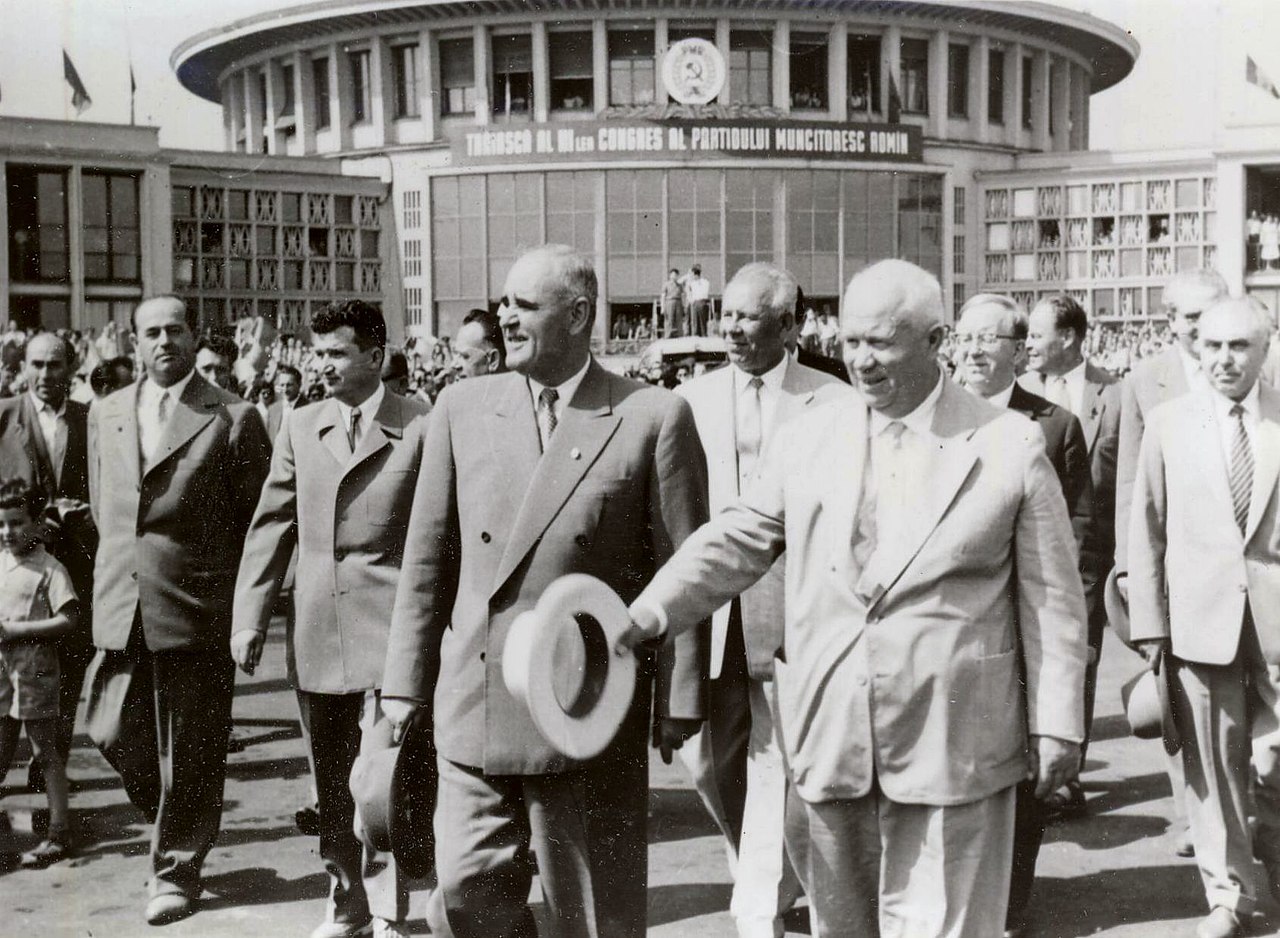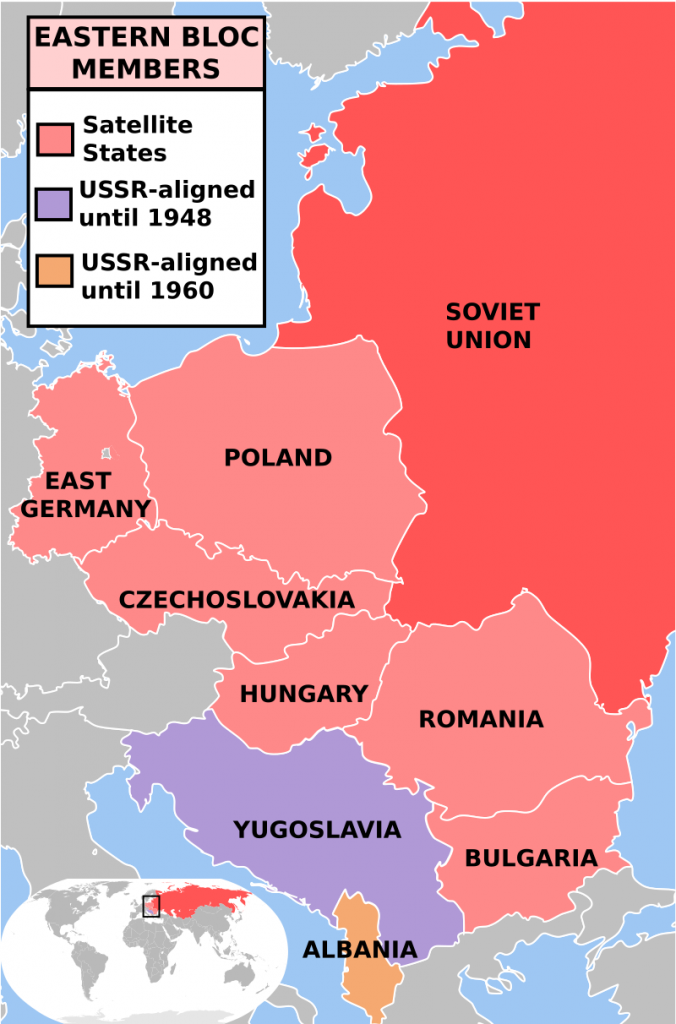
Romanian communist leader Gheorghe Gheorghiu-Dej seeing off Soviet leader Nikita Khrushchev (Wikimedia Commons/Fototeca online a comunismului românesc)
In the 1950s and 1960s the Soviet influence in Romania was very strong. The USSR controlled the country’s economy and political life. That was completely expected since the new government after the end of the Cold war was pro-Soviet. The first serious efforts to bring back sovereignty appeared in the 1960s. The communist government of Romania wanted to become economically independent and release the country from the covert and overt Soviet actions that made this country a satellite state under the strong control of the USSR. Therefore, regarding international relations, these two countries weren’t in equal position. The USSR had the power over Romania. And Romania wanted to make its own decisions. So, Soviet informal controls needed to be stopped.
The Question of Loyalty
Control was executed via Soviet clandestine networks and individuals recruited directly through KGB and GRU. Often, visiting officers were part of Soviet training programs. These training programs were also a chance for exerting influence, because these officers were also submitted to the programs of indoctrination. So, politically, Romania is one of the examples of informally conquered countries. During the 1960s we cannot speak about the revolution that will overthrow the communist government. Romanian international affairs were focused to have an equal position among the countries of the Eastern Bloc. So, the main question in diplomatic relations during the 1960s was a question of loyalty to the Soviets. It was obvious the line was crossed and it was necessary to do something about it.
De-Russification
Before Stalin’s death, there was no serious opportunity for undertaking big actions, but when Khruschev took the government, the informal resistance to the informal control started to grow. Firstly, the most important was to get rid of the Soviet agents and other elements in the institutions. When Moscow, without consulting the government, placed Romania’s armed forces on alert, it was actually an alert for the Romanian government to definitely put a stop to these actions. That meant a purge, especially of the military officers who were trained by the Soviets. The De-Russification campaign was a crucial move. The government didn’t allow anymore Soviet elements to penetrate political and social life. The Romanian Government wanted to collaborate with the Soviets, but only “at the top level”, and without interfering.

Thoughts of Nicolae Ceaușescu
“Now we turn to the problem of the agent networks. On the basis of the discussions which were held in the Political Bureau and in the Secretariat, regarding what we in fact raised also before the Soviet delegation led by Comrade Khrushchev (on 23-24 June 1963), we looked into the problem of how Soviet intelligence agent networks were and are still organized and how these networks develop their activity. I have talked with a number of persons (involved in this) from whom it emerges that they also continue now to recruit agent networks for the Soviet espionage service. They have continued to recruit Romanian citizens for the Soviet networks for use both in the country and abroad,” said Nicolae Ceaușescu at a meeting of the Political Bureau of the Romanian Workers Party. The Politburo wanted to shut down these networks of agents and reclaim the Romanian agents working on them.
The Question of Stability
Therefore, the1960s showed the first signs of change. The international relations between the East and the West weren’t only in the focus, but also the relations between the countries of the Iron Curtain. Strengthening his power, Ceaușescu brought back the sovereignty of his country. The Soviets were still the strongest link of the Eastern Bloc, but the other states, like Romania began to strengthen and made a group of strong communist governments that collaborated with each other. During this period, it’s obvious the Cold War went definitely in a certain direction. It seems that the Soviets changed their foreign policy, at least partially, to avoid the chaotic situation that threatened the stability of the bloc. Maybe, they also avoided the early collapse of the Iron Curtain?
Ivana Tucak
Sources:

2 thoughts on “Did the Soviets Avoid the Early Collapse of the Iron Curtain?”